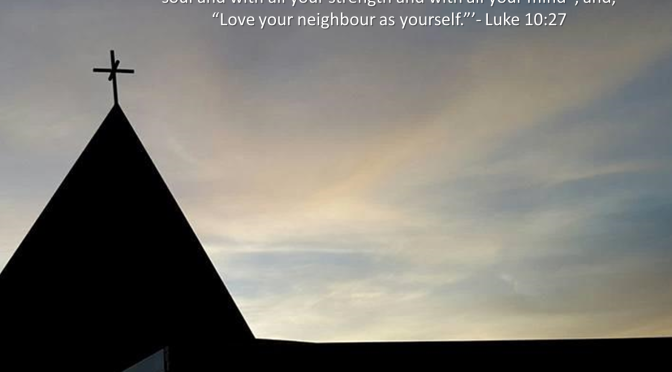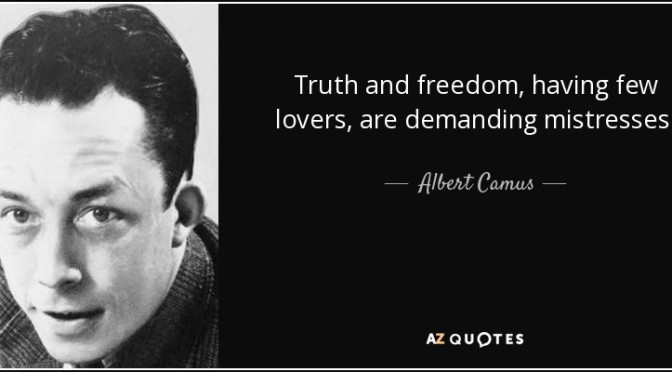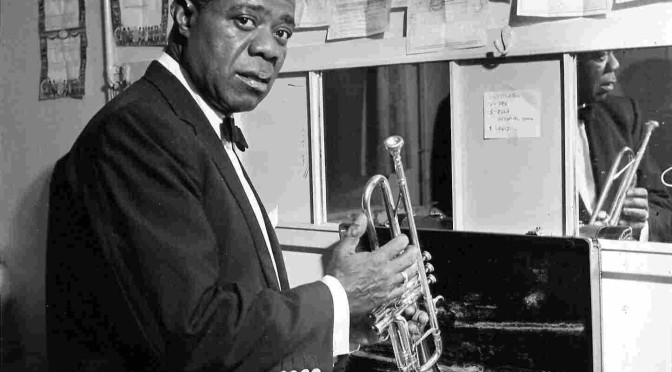Caitlin Trussell with Augustana Lutheran Church on February 12, 2017
[sermon begins after two Bible readings; 3rd reading follows sermon]
Matthew 5:21-30 You have heard that it was said to those of ancient times, “You shall not murder'; and “whoever murders shall be liable to judgment.’ 22 But I say to you that if you are angry with a brother or sister, you will be liable to judgment; and if you insult a brother or sister, you will be liable to the council; and if you say, “You fool,’ you will be liable to the hell of fire. 23 So when you are offering your gift at the altar, if you remember that your brother or sister has something against you, 24 leave your gift there before the altar and go; first be reconciled to your brother or sister, and then come and offer your gift. 25 Come to terms quickly with your accuser while you are on the way to court with him, or your accuser may hand you over to the judge, and the judge to the guard, and you will be thrown into prison. 26 Truly I tell you, you will never get out until you have paid the last penny. 27 “You have heard that it was said, “You shall not commit adultery.’ 28 But I say to you that everyone who looks at a woman with lust has already committed adultery with her in his heart. 29 If your right eye causes you to sin, tear it out and throw it away; it is better for you to lose one of your members than for your whole body to be thrown into hell. 30 And if your right hand causes you to sin, cut it off and throw it away; it is better for you to lose one of your members than for your whole body to go into hell. 31 “It was also said, “Whoever divorces his wife, let him give her a certificate of divorce.’ 32 But I say to you that anyone who divorces his wife, except on the ground of unchastity, causes her to commit adultery; and whoever marries a divorced woman commits adultery. 33 “Again, you have heard that it was said to those of ancient times, “You shall not swear falsely, but carry out the vows you have made to the Lord.’ 34 But I say to you, Do not swear at all, either by heaven, for it is the throne of God, 35 or by the earth, for it is his footstool, or by Jerusalem, for it is the city of the great King. 36 And do not swear by your head, for you cannot make one hair white or black. 37 Let your word be “Yes, Yes’ or “No, No'; anything more than this comes from the evil one.
Deuteronomy 20:15-20 See, I have set before you today life and prosperity, death and adversity. 16 If you obey the commandments of the Lord your God that I am commanding you today, by loving the Lord your God, walking in his ways, and observing his commandments, decrees, and ordinances, then you shall live and become numerous, and the Lord your God will bless you in the land that you are entering to possess. 17 But if your heart turns away and you do not hear, but are led astray to bow down to other gods and serve them, 18 I declare to you today that you shall perish; you shall not live long in the land that you are crossing the Jordan to enter and possess. 19 I call heaven and earth to witness against you today that I have set before you life and death, blessings and curses. Choose life so that you and your descendants may live, 20 loving the Lord your God, obeying him, and holding fast to him; for that means life to you and length of days, so that you may live in the land that the Lord swore to give to your ancestors, to Abraham, to Isaac, and to Jacob.
[sermon begins]
A few weeks ago my sister Izzy and I went through several boxes of my grandfather’s things. We were on task to organize not synthesize. One of the stacks to read through later are letters that Granddad sent Grandma Ruth. Some of the letters are from before they were married. Some of them are from their married years when he traveled for work. My experience of Granddad was a silent, stoic type with a grumpy edge. A quick glance through the letters reveals that he had a variety of sweet nick-names for Grandma Ruth. I suspect that his letters will reveal a lot about him. The kinds of things he thought. His side of the relationship with my grandmother.
Those letters have been on my mind as we approach Valentine’s Day. Letters are becoming a lost art although blogs are everywhere. The written word has shifted but remains. And the written word still reveals a lot about the writer. Which brings us to the Bible verses read today.
The Ten Commandments are commonly understood as law. I’m going to press pause here. Just a moment to acknowledge that in our country we’re experiencing and disagreeing about laws – how they’re made, when they’re legal, etc. There is a lot going on about constitutionality. Checks and balances. Who makes the law? Who stalls the laws? All of that to say that for this conversation I invite us to put all of that in a parking lot so that we can have a shot at hearing these scriptures without conflating them. Not possible, pastor, you might say? Well, let’s at least try and see where that gets us.
The Ten Commandments are commonly understood as law. Just before our verses from Matthew today, Jesus says in verse 17, “Do not think that I have come to abolish the law or the prophets; I have come not to abolish but to fulfill.”[1] Right away, in verse 21, Jesus puts those words into stark relief against the disciples’ lives. This chunk of verses that begin today and conclude next Sunday are called the antitheses.[2] There are six of them. Today we hear four.
Jesus begins each interpretation of the law with, “You have heard that it was said, but I say to you…” For each antithesis, Jesus starts with the commandment and amplifies its protection over the other person in the relationship. “You have heard that it was said…‘You shall not murder’…But I say to you that if you are angry…” Jesus goes on to talk about making peace with the person you’re angry before offering gifts at the altar. We participate in this antithesis every week when we share the peace during worship before the offering and communion.
The antitheses about adultery and divorce are similar in that Jesus demands the disciples’ protection of other people as the commandment is amplified. In first century terms, adultery and divorce left women without a safeguard in community. Jesus uses big language to get at the seriousness of the offenses.
Here is where it becomes important to look at the Ten Commandments and what they say about God, the giver of life. The Deuteronomy reading helps with the emphases on life. What does life look like? It looks like following the law of life that directs us toward care of neighbor. What are the natural consequences for not caring for the neighbor? Death and adversity. Our image of God becomes evident by what we think is the cause of our death and adversity. In our mind’s eye, if we see God as a white-bearded-judge-who-sees-us-sleeping-and-awake-so-be-good-for-goodness-sake-or-punishment-will-come kind of God, then God is a punisher of epic proportions, lightning bolts included.*
However, the God who gave the Ten Commandments, gave them to a people whom God had already redeemed through the covenant with Abraham. The covenant with the people came from a God who freed them from slavery before these commandments were written.** God’s people are set free without contingency and directed toward each other as a gift of life. Directed toward each other in the kingdom of heaven in the here-and-now. These commands say more about God then they do about us. The author of life give commandments so that life may thrive among the people God so loves.
Let’s take, “You shall not murder.” It seems straightforward. As of yet, I’ve not killed anyone today. In the antithesis, Jesus amplifies this commandment into a rebuke of anger. The exaggerated hyperbole of Jesus’ words gets our attention. A lot of you haven’t seen me truly angry but I have a husband and a couple of kids that could paint that picture for you. Jesus antitheses catch us where we live by showing us how we diminish life for other people. They take us beyond a manners lesson into new life by convicting us. What begins as a doable list of commands becomes a mirror about how we are really treating the people God so loves.
The Augustana staff begin the latest weekly devotions at staff meeting with Luther’s Small Catechism. Right now, we’re taking the Ten Commandments one at a time. Reading the commandment, Luther’s explanation, a bit of commentary and following up with a conversation. Luther does his own antitheses of sorts by flipping the commandment into how we should care for our neighbor. For murder, Luther writes, “We are to fear and love God, so that we neither endanger nor harm the lives of our neighbors, but instead help and support them in all of life’s needs.”[3] Our conversation about the explanation then takes it a step further into what this looks likes in our own lives.
My next comments are for the 6th, 7th, and 8th grade confirmation students and their parents. Students, you’re starting the Small Catechism in Confirmation Sunday School. It begins with the Ten Commandments and Luther’s explanation. In these conversations, I invite you to think and talk about what these commandments say about who God is and the life that God envisions for us. Parents, this is an opportunity for curiosity. After all, Luther wrote the Small Catechism for faith conversation in the home. Continue to ask the questions about God while remembering that God’s saving act in Jesus is not dependent on anything we do as people. It’s why we talk about God’s grace first, God’s new life first, and then we talk about Commandments.
As a congregation we’re invited to be curious too. We’ll begin Lent in a couple weeks on March 1 with the chance to study Luther’s Small Catechism with each other and with Lutheran Christians all over the world. The 500 Year Anniversary of the Reformation serves as the spark. The small devotion books are here in the church office.[4] Each day is a page that directs our attention to a bit of the Small Catechism, a bit of prayer, a picture, and a thought or story from different writers. The Adult Sunday School classes in Lent will also be centered on this devotion book. Pick one up.
More importantly, be curious. Be curious about our God who so loves the whole world that the law is given as a gift of life. God renews our lives with each other through the law leaving us open to surprise and amazement when we see it in action through other people. Be prepared to be surprised and amazed when God suddenly renews our lives with each other through you. Because Jesus didn’t die to give us the 10 commandments on steroids.*** Jesus died because of our tendency to choose death over life. Well, God is having none of it and chooses life for us when we’re not inclined to choose it for ourselves. Thanks be to God. Amen.
[1] Matthew 5:17
[2] Carla Works, Associate Professor of New Testament at Wesley Theological Seminary in Washington D.C. Commentary on Matthew 5:21-37 for Working Preacher on February 16, 2014. http://www.workingpreacher.org/preaching.aspx?commentary_id=2033
* David Lose. Commentary: On Love and the Law, Matthew 5:21-37 for In the Meantime… February 6, 2017. http://www.davidlose.net/2017/02/epiphany-6a-on-love-and-law/
**Ibid.
[3] Evangelical Lutheran Worship. Small Catechism of Martin Luther. (Minneapolis: Augsburg Fortress, 2006), 1160.
[4] Javier Alanis. Free Indeed: A Devotion for Lent 2017. (Minneapolis: Augsburg Fortress, 2017). Sold out in hard copy but still available as e-book: https://store.augsburgfortress.org/store/product/22245/Free-Indeed-Devotions-for-Lent-2017-Pocket-Edition
***David Lose per a colleague sharing this quotation at preacher’s text study. I couldn’t find the direct citation.
1 Corinthians 3:1-9 And so, brothers and sisters, I could not speak to you as spiritual people, but rather as people of the flesh, as infants in Christ. 2 I fed you with milk, not solid food, for you were not ready for solid food. Even now you are still not ready, 3 for you are still of the flesh. For as long as there is jealousy and quarreling among you, are you not of the flesh, and behaving according to human inclinations? 4 For when one says, “I belong to Paul,” and another, “I belong to Apollos,” are you not merely human? 5 What then is Apollos? What is Paul? Servants through whom you came to believe, as the Lord assigned to each. 6 I planted, Apollos watered, but God gave the growth. 7 So neither the one who plants nor the one who waters is anything, but only God who gives the growth. 8 The one who plants and the one who waters have a common purpose, and each will receive wages according to the labor of each. 9 For we are God’s servants, working together; you are God’s field, God’s building.

![God Chooses Life [OR Stay Curious, My Friends] Matthew 5:21-30, Deuteronomy 30:15-20, 1 Corinthians 3:1-9](https://caitlintrussell.org/wp-content/uploads/2017/02/o-CURIOUS-BLACK-CHILD-facebook.sermon-Caitlin-Trussell-672x372.jpg)
![Loving Before Knowing [OR The Foolishness of the Cross] Matthew 5:1-12, 1 Corinthians 1:18-31](https://caitlintrussell.org/wp-content/uploads/2017/01/cross-equals-heart-sermon-Caitlin-Trussell-672x372.jpg)
![Faithful Curiosity [OR Dr. King’s Love In Action] John 1:29-42](https://caitlintrussell.org/wp-content/uploads/2017/01/martin-luther-king-jr.Love-Is-The-Only-Force-Enemy-to-Friend.sermon-Caitlin-Trussell-637x372.png)
![Wally’s World [OR Into This World, This Demented Inn] Luke 2:1-20](https://caitlintrussell.org/wp-content/uploads/2016/12/The-Nativity.Julius-Gari-Melchers.20th-century.sermon-Caitlin-Trussell-672x372.jpg)
![Darkness is Not Dark to God [Longest Night reflection] – John 1:1-5, 14 and Psalm 139:1-12](https://caitlintrussell.org/wp-content/uploads/2016/12/Longest-Night.Starry-Night-image.Light-in-Darkness.sermon-Caitlin-Trussell-672x372.png)
![Agency Denied [OR Why Joseph is Our Guy] Matthew 1:18-25](https://caitlintrussell.org/wp-content/uploads/2016/12/Meister_von_Castelseprio_fresco-of-Josephs-dream-in-Church-of-Santa-Maria-foris-portas.sermon-Caitlin-Trussell-672x372.jpg)
![Thievery, Shadows and Light [OR Why Matthew’s Year is Good News] Matthew 24:36-44, Isaiah 2:1-5, Psalm 122, Romans 13:8-14](https://caitlintrussell.org/wp-content/uploads/2016/11/NASA.JPL_.light-and-shadow-exhibit.sermon-Caitlin-Trussell-672x372.jpg)


